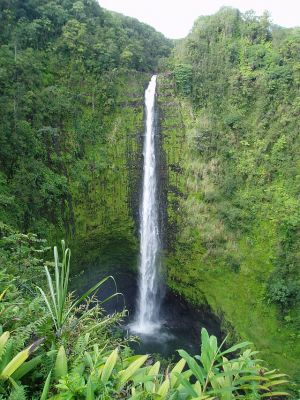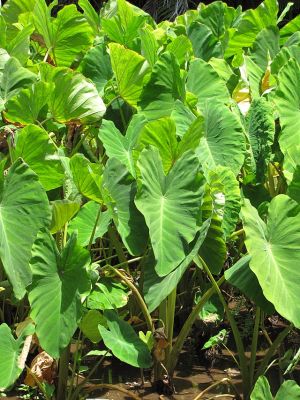

Centering Indigenous knowledge to advance water research
(Honolulu, HI) – The Land Back movement has called for global solidarity to address the oppression and dispossession of Indigenous Peoples’ lands and territories. The alienation of Indigenous Peoples from Water has largely been absent from this call to action. However, there is a growing consensus among Indigenous Water Protectors who assert that there cannot be Land Back without Water Back.
In a collaborative response to this emerging movement, an international group of Indigenous researchers, including two from the University of Hawai‘i at Mānoa, led by Dr. Kelsey Leonard, professor in the Faculty of Environment at the University of Waterloo and Canada Research Chair in Indigenous Waters, Climate and Sustainability, have offered a definition of Water Back as it relates to Water research.
For the Indigenous author team, for communities, and within the primarily English-language, Indigenous-oriented and produced research, Water Back means the return of Water and kin to Indigenous governance in a way that empowers the resurgent Indigenous Water relationships that are integral to Indigenous cultural, biological, spiritual, and political sovereignty; this includes cosmology, ceremony, access, law, and policies.
“In articulating a Water Back framework that draws primarily from Indigenous scholarship, our author collective provides perspectives and resources that the scientific community can readily access and implement into their own research,” said Dr. Rosie Alegado, co-author of the review paper published in Water Alternatives recently, associate professor of Oceanography in the UH Mānoa School of Ocean and Earth Science and Technology (SOEST), and director of the Ulana ‘Ike Center of Excellence at the University of Hawai‘i Sea Grant College Program.
The co-authors conducted a first-of-its-kind, comprehensive review of Indigenous Water literature—analyzing more than 419 published journal articles, government reports, and official documents and identified Water Back themes such as cosmology and governance, colonialism, justice, responsibilities and rights, health, and climate change. Their unique approach grows the scholarly movement to empower Indigenous research methods.
“The paper provides a valuable entry point for learning about Indigenous Water that is both grounded in Indigenous scholarship and that balances cross-cutting themes with the specifics of a diversity of cases and contexts,” said Dr. Aurora Kagawa-Viviani, co-author and assistant professor at the Water Resources Research Center and Department of Geography and Environment in the UH Mānoa College of Social Sciences.
Water Back is allowing Water to rematriate relationships with Indigenous Peoples, the Lands that are nourished by Water, and the more-than-human relatives that live within and care for Water. Water Back is the restoration of humanity’s responsibility to care for Water and the recognition of Indigenous Peoples’ inherent relationships, connections, rights, and responsibilities to Water.
“The definition advances a holistic conceptualization, offering an important framework centering Indigenous ways of knowing, doing, and being as a foundation for advancing Indigenous Water research,” said Leonard. “The framework also represents a collective of Indigenous Water researchers “restorying” how Indigenous Water research relationships are created or rematriated for the protection of the Water, the planet and future generations.”
The authors’ review and definition advance a holistic conceptualization of Water Back as a framework for future research sovereignty, focusing mainly on instances in Canada, Australia, Aotearoa New Zealand, and the United States. It has drawn international attention from water scientists foregrounding Indigenous intergenerational knowledge of weather, Water, and Land as being crucial to both the understanding of historical climate changes and the shaping of healthy future lifeways.
Another significant outcome of the work was recognition that a database specifically dedicated to Indigenous Water research literature was absent. In response, the team made the decision to create and maintain a comprehensive database of the literature they reviewed. The database is now accessible for everyone to use and, starting in the fall of 2023, contributions will be welcomed from individuals or communities globally.
Portions of this content are courtesy of University of Waterloo.
Twitter video abstract on Dr. Kelsey Leonard’s page:
https://twitter.com/KelseyTLeonard/status/1669032045941784576?s=20
Watch the YouTube video here!

